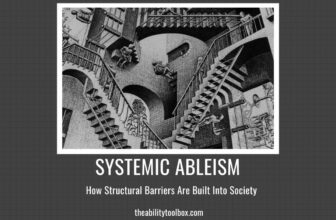
Chronic illnesses come with an unpredictability that makes it hard to plan and can affect everyday life. Career paths, social lives, and relationships are impacted, as well as self-confidence, mental health, and overall well-being. Living with one chronic illness can be exhausting, so what is life like with multiple diagnoses?
My first experience of chronic illness started in my teens when I was struggling with low mood, lack of motivation, and general fatigue. It hadn’t occurred to me that this could be depression – after all, I wasn’t crying all the time, which was what I associated with being depressed. When my beloved Gran died, my symptoms worsened. My energy levels were at an all-time low, but it was as though I could feel every nerve ending in my body. I was constantly on edge and had no energy or enthusiasm for life.
Selective serotonin reuptake inhibitors drugs (SSRIs) helped reduce the overwhelming sensations, although I did still struggle with anxiety in social situations – something which was exacerbated when I was mugged.
My physical health was deteriorating at this point, something I put down to my mental state and inability to properly look after myself. My diet was poor, I had no desire to exercise, and my gut health was problematic, with regular spells of diarrhea. Little did I know that the change in bowel movements was the first indication of a second chronic illness – Crohn’s Disease.
It is common for it to take a long time to get a diagnosis of inflammatory bowel disease, and this was the case for me. Ten years of misdiagnosis led to my mental health worsening once again, especially because I knew my body wasn’t working effectively.
When I was diagnosed with lichen sclerosis earlier this year, there was a very real chance of my mental health taking another nosedive – unsurprising when you consider people with chronic illnesses can be more prone to developing low mental health due to stress, pain, social isolation, and decreased self-esteem. One study suggests 50.6% of people with mental disorders also have a chronic illness.
I have heard it said before that being diagnosed with chronic illness is a form of grief. That resonates with me as my initial reaction to all three of my diagnoses was to think about the negative impact they would have on my life. I love live music, theatre and travel and could only see how much harder both my physical and mental illnesses were going to make my hobbies.
Over time I came to the conclusion that instead of focusing on the difficulties, I would instead look at how I could live the life I love while navigating my health issues. This meant making changes to my lifestyle and looking inward to find what matters most to me as an individual. The results surprised me and gave me a new impetus. Here is what I have found helps me.
Plan
Planning has always been important to me, but I have taken organization to the next level. Prioritizing has become second nature. I keep a to-do list in my Filofax and note which tasks are the most pressing. I make a conscious effort to allow myself time to rest and schedule it into my week – something I have found particularly helpful after a busy day.
Cancel
No one likes to cancel their plans but sometimes it’s necessary to avoid burnout. With careful planning, cancellations are a rare occurrence, but the unpredictability of chronic illness means they still do happen. Try not to feel guilty – taking care of yourself is the top priority.
Talk
Explaining how your chronic illness affects you helps to educate and inform the people in your life. Unless they have lived experience of long-term illness, they probably don’t realize how it can affect every part of your day. By explaining, they will develop a greater understanding of how you are managing your chronic illnesses and become more empathetic towards others who are living with similar conditions.
Pursue New Adventures
One of the most positive things to come out of the diagnosis of my third chronic illness was that it encouraged me to look at what I wanted to prioritize and try new things. For a long while I had wanted to get involved with the Girlguiding movement, having loved my time as a Brownie back in the 1980s. Now I am a volunteer with a Rainbow unit, helping weekly with a group of girls aged 4-7. There are four other adults also volunteering, so I don’t have to worry about letting them down if I am unwell as they are not relying on me to meet the required child/adult ratios.
Be Your Own Advocate
You know your body better than anyone else, so if you notice any changes, always consult a healthcare professional. When you have multiple chronic illnesses already, it can be easy to dismiss new symptoms as part of a condition you have been diagnosed with, but be vigilant. Globally, 1 in 3 adults live with multiple illnesses. Know your normal and be your own advocate.
Having multiple diagnoses can feel overwhelming but small changes can make a big difference. You’ve got this. I have, too.
Image via Deposit Photos







